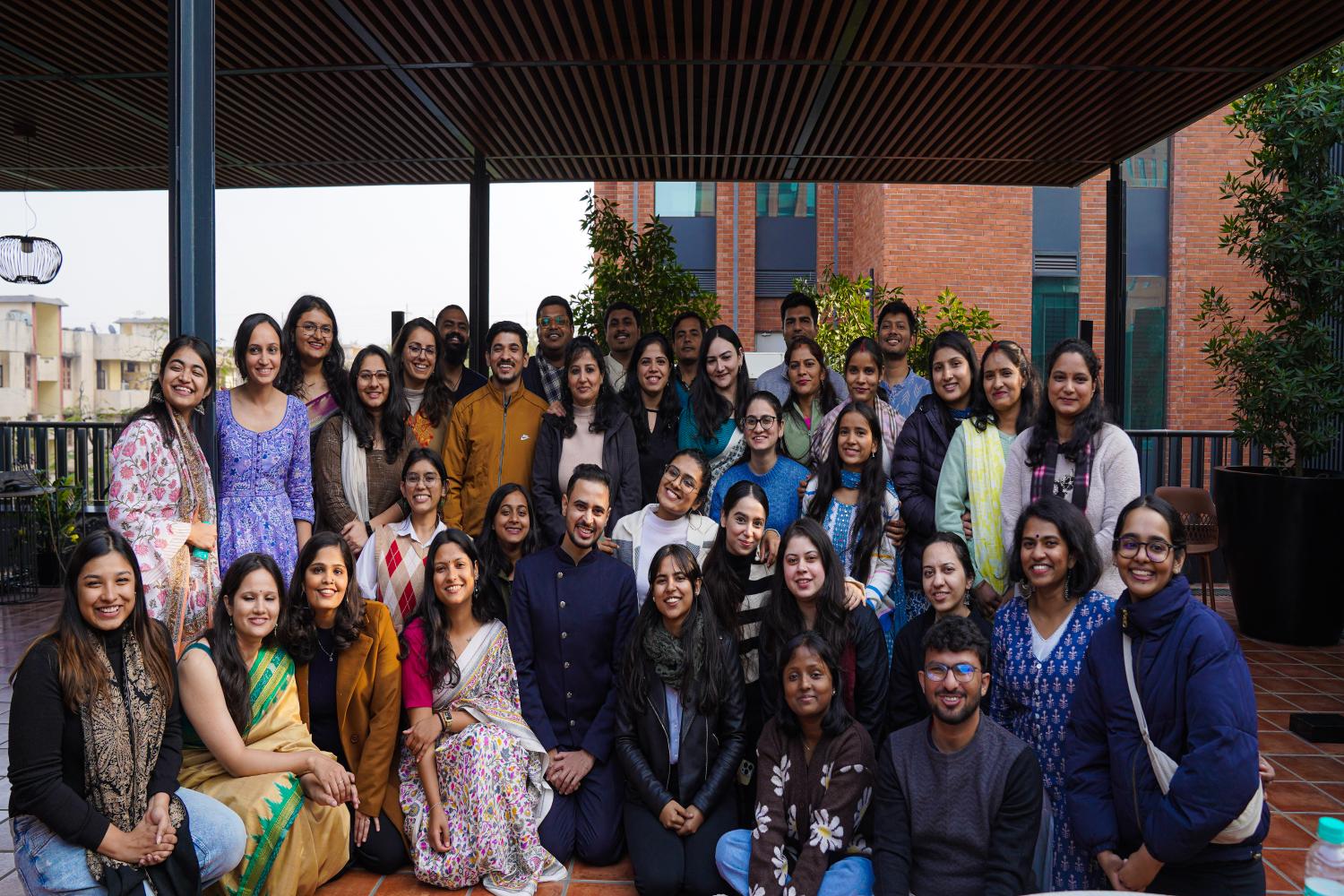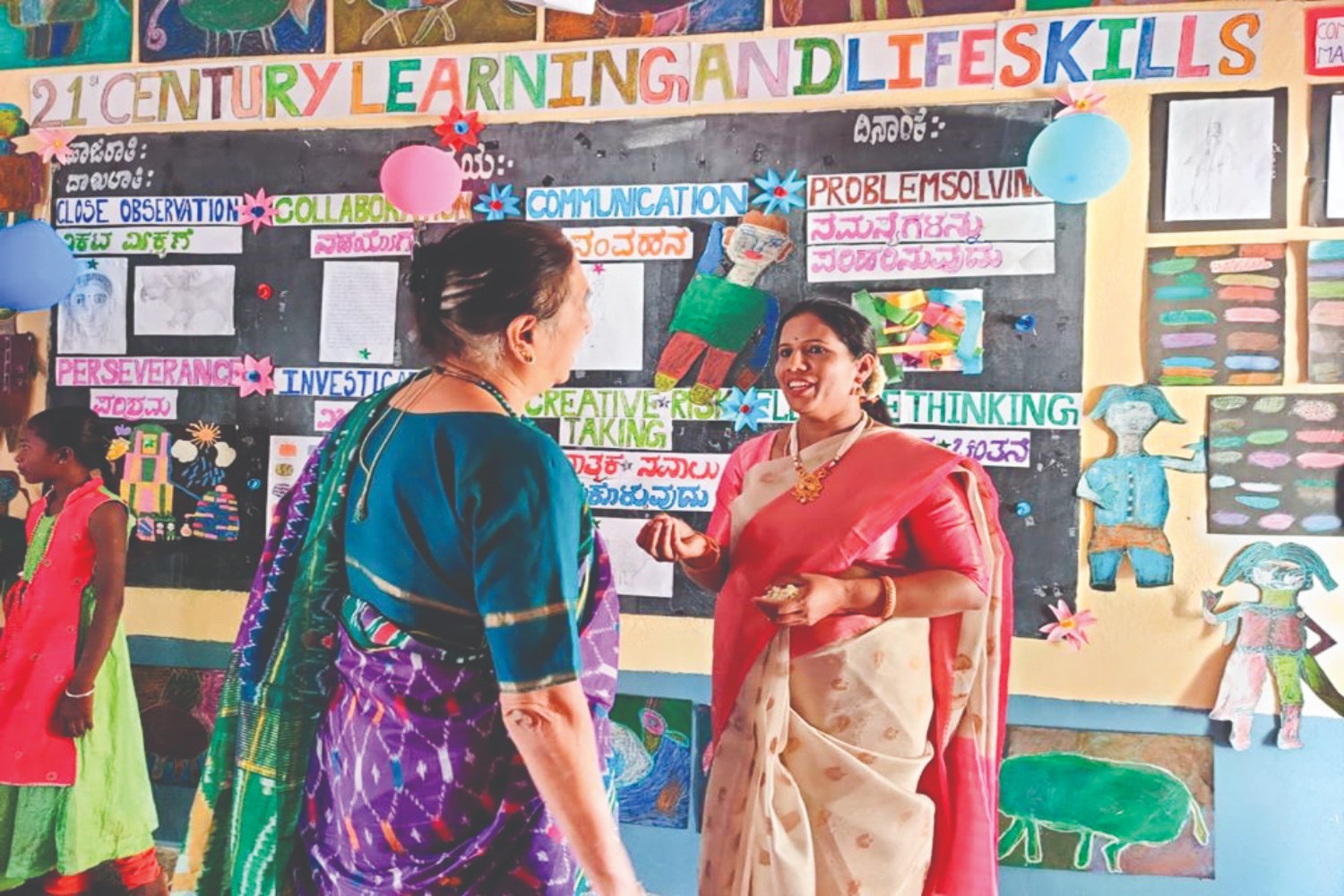Building a supportive space: nurturing culture in a non-profit
Mainak Roy and Trisha Sharma, in their essay, show that in order to create CSOs as supportive spaces for all team members, it is important to cultivate an organizational culture that prioritizes empathy, inclusion and learning.

The world of education is often filled with unsung heroes. For two years, Mainak worked as a government schoolteacher. In the process, they witnessed firsthand the dedication of these educators despite the lack of support and resources. This experience fueled their desire for change and led to the creation of Simple Education Foundation (SEF).
SEF has two main goals – to empower government schoolteachers and create classrooms where children can truly thrive. We believe that a child’s success in the classroom translates to success in life. However, reaching a million teachers across India was a monumental challenge that could not be tackled alone. SEF needed a strong foundation – a vibrant culture where everyone can grow and succeed.
Building a positive culture is a difficult task that requires unwavering commitment. At SEF, we are determined to break free from the stereotypes of non-profits being unprofessional or delivering subpar results. We aim to be a high-performing, data-driven organization with a deep connection to the communities we serve.
Overcoming challenges
One of the challenges we have faced is the lack of funding for capacity building, which is crucial for developing a strong team. Donors often prioritize immediate program implementation over long-term investments in our people.
This makes it difficult to cultivate a learning environment that is necessary for sustained excellence. However, we remain committed to building a thriving culture. We try to do this by actively investing in capacity building for individuals, teams, and the larger organization.
Empathy and inclusion
Non-profits champion humanity and inclusivity. Yet, the sector itself often falls short in these areas. This can lead to burnout and disillusionment among talented individuals. At SEF, we strive to break this cycle.
We do this by actively building a humane and inclusive organization. We want SEF to be a space where people from diverse backgrounds feel safe to express themselves and be themselves. We understand that this is an ongoing process. It requires constant effort and persistence.
Building the team
Attracting and retaining talent remains a constant challenge for non-profits. This is due to the lack of talent in the ecosystem and weaker remuneration structures. At SEF, we have taken several steps to address this issue.
We have made our salary bands public. This ensures transparency. It also provides clarity for potential candidates. We have developed a comprehensive competency framework. Its goal is to identify individuals who align with SEF’s culture and the dispositions required for each role. We prioritize learning and growth opportunities for our team members.
We intentionally recruit for early-level roles. We provide opportunities for internal growth into senior positions. This approach has helped us retain talent. This also ensures continuous learning.
Spaces to learn
One of Mainak’s earliest learnings at work was the influence of both physical and figurative spaces on learning. At SEF, we have created open spaces like “Voices of SEF” to explore identities and how they impact our work and approach.
These spaces allow us to understand each other better. They also strengthen our commitment to the organization’s culture and values. We have designed our office to be a safe and comfortable space for our teams. It provides simple joys like a comfortable sofa, a cold glass of water after a long week, and thus is welcoming to all.
In conclusion
SEF’s journey is far from over. We continue to refine our approach. We are constantly learning and adapting. However, one thing remains constant. This is our belief in the power of a strong culture.
It is the invisible thread that binds us. It empowers us to tackle ambitious goals. It also fosters an environment where individuals can flourish alongside the organization they work for.
In a world often focused on outcomes, SEF champions the journey. We believe that by building a thriving internal ecosystem, we can create a ripple effect. This can potentially empower educators, enrich classrooms, and ultimately shape the lives of countless children.
This is the legacy we strive for. It is a testament to the transformative power of a culture built with intention and nurtured with care.




No approved comments yet. Be the first to comment!